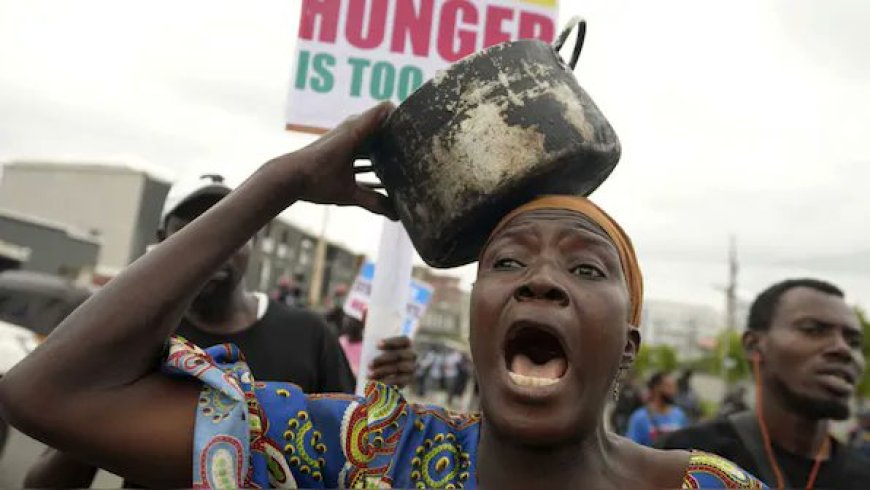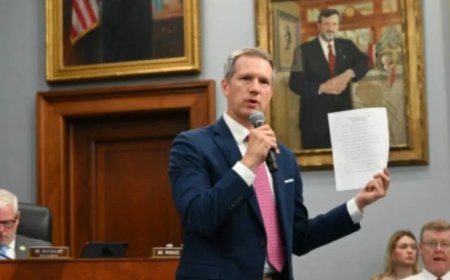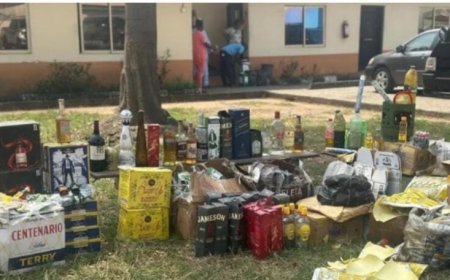Food Insecurity: Two in Eleven Nigerians Face Daily Hunger, Experts Warn

By: Israel Adeleke
OPEN TELEVISION NAIJA (OTN) News reports as gathered that experts in the agricultural sector have raised alarm over Nigeria’s worsening food insecurity, revealing that two out of every eleven Nigerians face daily hunger.
OTN News further reports as gathered that speaking at a workshop for non-state actors on the Maputo to Kampala Declaration in Abuja over the weekend, the Comprehensive Africa Agriculture Development Programme (CAADP) National Focal Person, Onijighogia Emmanuel, disclosed that one in five Africans goes hungry each day, with 58 per cent of the continent’s population already food insecure.
Emmanuel explained that 924.8 million Africans cannot afford a healthy diet, while in Nigeria, about six in ten households lack access to nutritious meals.
He further warned that the situation could deteriorate as Africa’s population surges toward an estimated 2.5 billion by 2050, with Nigeria projected to reach 450 million people.
He added that unsafe food remains a serious concern, noting that over 130,000 Africans — including more than 50,000 Nigerians — fall ill annually from food contamination, reducing productivity and straining household finances.
On government commitments, Emmanuel reminded participants that under the Maputo and Kampala Declarations, African leaders pledged to allocate at least 10 per cent of their national budgets to agriculture to achieve 6 per cent annual GDP growth. However, Nigeria currently spends only about 3 per cent.
Calling for greater involvement of women and youths in farming, Emmanuel said: “We need to encourage women and young people to participate in agriculture.”
He, however, commended the Minister of Agriculture and Food Security for setting up a technical committee to develop a 10-year national plan aligned with CAADP and for creating an 86-member Agricultural Central Working Group involving government, private sector, and civil society representatives.
On his part, the ActionAid Nigeria’s Food Systems Specialist, Azubike Nwokoye, emphasised the need for accountability and effective utilisation of agricultural budgets.
He identified key priorities such as access to credit, youth and women participation, extension services, processing facilities, and the reduction of post-harvest losses.
Nwokoye also revealed that ActionAid has mobilised over two million smallholder women farmers into cooperatives nationwide and is collaborating with partners to engage young farmers in policy-making processes.
Similarly, the Coordinator of the Small-Scale Women Farmers’ Organisation, Oyediji Grace Bukola, reaffirmed her group’s commitment to advocating for the full implementation of the Kampala Declaration.
She called on the government to meet its 10 per cent agricultural budget commitment and improve credit access for smallholder farmers.
“Farmers don’t want to go on strike. If we go on strike, nobody will have food on their table. We want to put food on every household’s table,” she said.
OTN News observes that Nigeria’s deepening poverty crisis further underscores the urgency of these calls.
As reported by PUNCH Online in May 2025, over 75 per cent of rural dwellers and 40 per cent of urban residents live in poverty.
Since surpassing India as the world’s poverty capital in 2018, the number of Nigerians in multidimensional poverty rose to 133 million by 2022, a situation worsened by subsidy removals and the naira float in 2024.
Experts at the workshop unanimously urged urgent, coordinated interventions to address hunger and prevent Nigeria from sliding further into economic and nutritional distress.
What's Your Reaction?























































